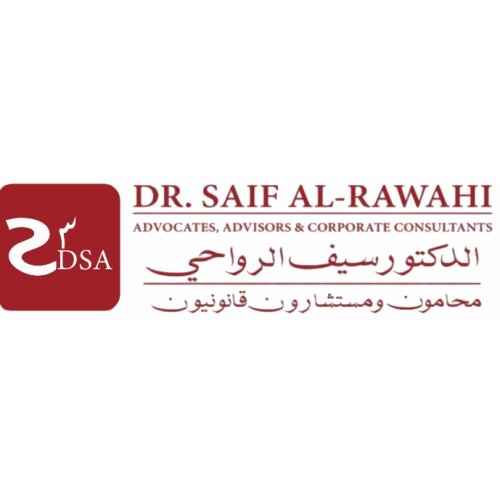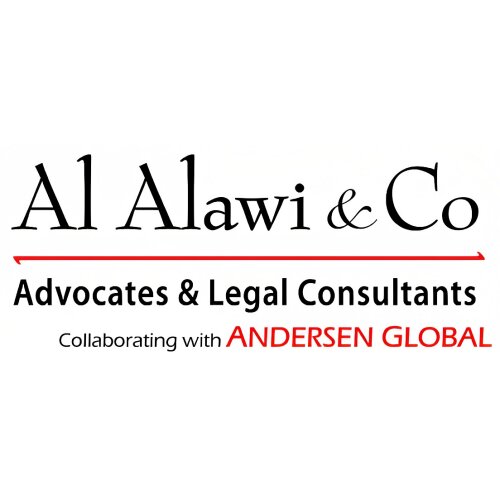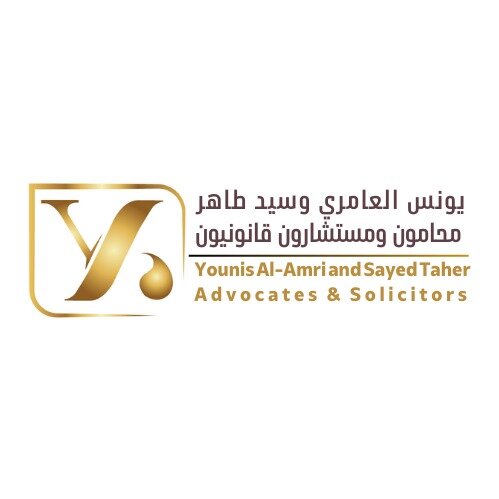Best Financial Services Regulation Lawyers in Muscat
Share your needs with us, get contacted by law firms.
Free. Takes 2 min.
List of the best lawyers in Muscat, Oman
About Financial Services Regulation Law in Muscat, Oman
The financial services sector in Muscat, Oman, is governed by a comprehensive legal framework designed to ensure stability, transparency, and integrity in financial markets. The regulatory landscape in Oman is mainly shaped by the Capital Market Authority (CMA) and the Central Bank of Oman (CBO). These bodies establish regulations to oversee banks, investment firms, insurance companies, and other financial entities to protect investors and maintain economic stability. Oman's approach to financial regulation focuses on prudential supervision, consumer protection, anti-money laundering measures, and compliance with international standards.
Why You May Need a Lawyer
There are several situations where individuals or businesses might require legal assistance in financial services regulation:
- Compliance Issues: Ensuring that your financial operations adhere to local laws and regulations can be complex, requiring in-depth knowledge and experience.
- Licensing: Navigating the licensing process for financial entities requires understanding intricate regulatory requirements.
- Dispute Resolution: Conflicts can arise between financial institutions, investors, or regulatory bodies that may necessitate legal intervention to resolve.
- Contractual Obligations: Drafting, reviewing, and negotiating contracts within the financial services sector often requires legal guidance.
- Regulatory Changes: Keeping pace with the ever-evolving legal landscape necessitates legal expertise to ensure compliance.
Local Laws Overview
Key aspects of the local laws relevant to financial services regulation in Muscat include:
- Licensing and Authorization: Financial entities must obtain licenses from the relevant regulator, such as the CMA or CBO, to operate legally.
- Corporate Governance: Institutions are required to maintain robust governance frameworks, ensuring accountability and transparency in operations.
- Reporting Obligations: Regular reporting to regulators is mandatory to ensure compliance and facilitate effective oversight.
- Consumer Protection: Financial institutions must adhere to standards protecting consumer rights to ensure fair treatment and clear information disclosure.
- Anti-Money Laundering (AML) and Counter-Terrorist Financing (CFT): Strict AML and CFT measures must be implemented by financial entities to prevent illicit activities.
Frequently Asked Questions
1. What is the role of the Capital Market Authority in Oman?
The Capital Market Authority supervises Oman's securities market, ensuring transparency and integrity and regulating insurance and corporate governance.
2. How does the Central Bank of Oman regulate financial services?
The Central Bank of Oman regulates banks, monetary policy, manages financial stability, and establishes prudential regulations for licensed entities.
3. What licenses are required to establish a financial institution in Oman?
Depending on the financial services offered, licenses from either the CBO or CMA are mandatory before commencing operations.
4. How can I ensure compliance with Omani financial regulations?
Engaging with a knowledgeable legal advisor can help in navigating compliance requirements and keeping updated with regulatory changes.
5. What are Oman's corporate governance requirements?
Oman mandates that financial institutions implement strong corporate governance frameworks to ensure responsibility and effective oversight.
6. How are consumer rights protected in Oman's financial sector?
Financial entities must adhere to regulations ensuring fair treatment, clear disclosure, and proper handling of consumer complaints.
7. What are the penalties for non-compliance with financial regulations?
Penalties may include fines, operational restrictions, or license revocation depending on the severity of non-compliance.
8. How is anti-money laundering enforced in Oman?
Oman has stringent AML/CFT regulations requiring financial entities to implement systems and processes to detect and report suspicious activities.
9. Can foreign entities operate in Oman's financial sector?
Yes, but they must comply with local regulations and acquire the necessary licenses from the appropriate regulatory body.
10. What is the impact of international financial standards in Oman?
Oman aligns its financial regulations with international standards to enhance market stability and attract global investment.
Additional Resources
For additional information and resources, consider reaching out to the following organizations:
- Capital Market Authority (CMA): The primary regulator for the securities market and insurance industry in Oman.
- Central Bank of Oman (CBO): The leading authority for banking regulation and financial policy in the Sultanate.
- Ministry of Commerce and Industry: Offers guidance on business regulations that impact financial services.
Next Steps
If you require legal assistance in financial services regulation, consider the following steps:
- Identify Your Needs: Clearly define the issues or areas where legal expertise is required.
- Research Legal Experts: Look for legal professionals with a proven track record in financial services regulation in Oman.
- Schedule Consultations: Meet with potential legal advisors to discuss your situation and gain preliminary advice.
- Engage a Lawyer: Once satisfied with your choice, formally engage the lawyer to assist with your legal needs.
Having the right legal guidance can significantly ease the complexities of compliance and regulatory navigation in Oman's financial services sector.
Lawzana helps you find the best lawyers and law firms in Muscat through a curated and pre-screened list of qualified legal professionals. Our platform offers rankings and detailed profiles of attorneys and law firms, allowing you to compare based on practice areas, including Financial Services Regulation, experience, and client feedback.
Each profile includes a description of the firm's areas of practice, client reviews, team members and partners, year of establishment, spoken languages, office locations, contact information, social media presence, and any published articles or resources. Most firms on our platform speak English and are experienced in both local and international legal matters.
Get a quote from top-rated law firms in Muscat, Oman — quickly, securely, and without unnecessary hassle.
Disclaimer:
The information provided on this page is for general informational purposes only and does not constitute legal advice. While we strive to ensure the accuracy and relevance of the content, legal information may change over time, and interpretations of the law can vary. You should always consult with a qualified legal professional for advice specific to your situation.
We disclaim all liability for actions taken or not taken based on the content of this page. If you believe any information is incorrect or outdated, please contact us, and we will review and update it where appropriate.

















